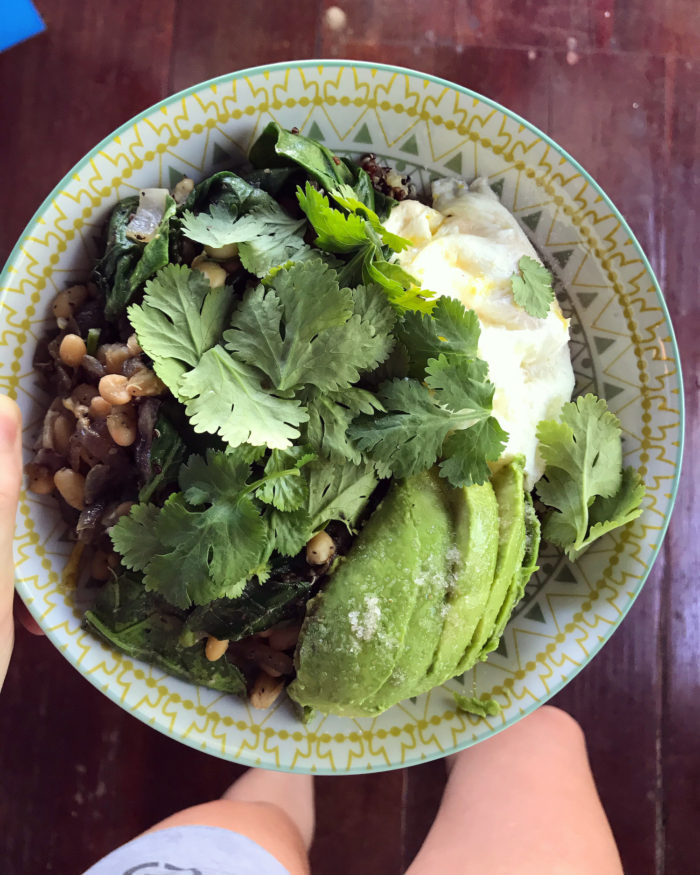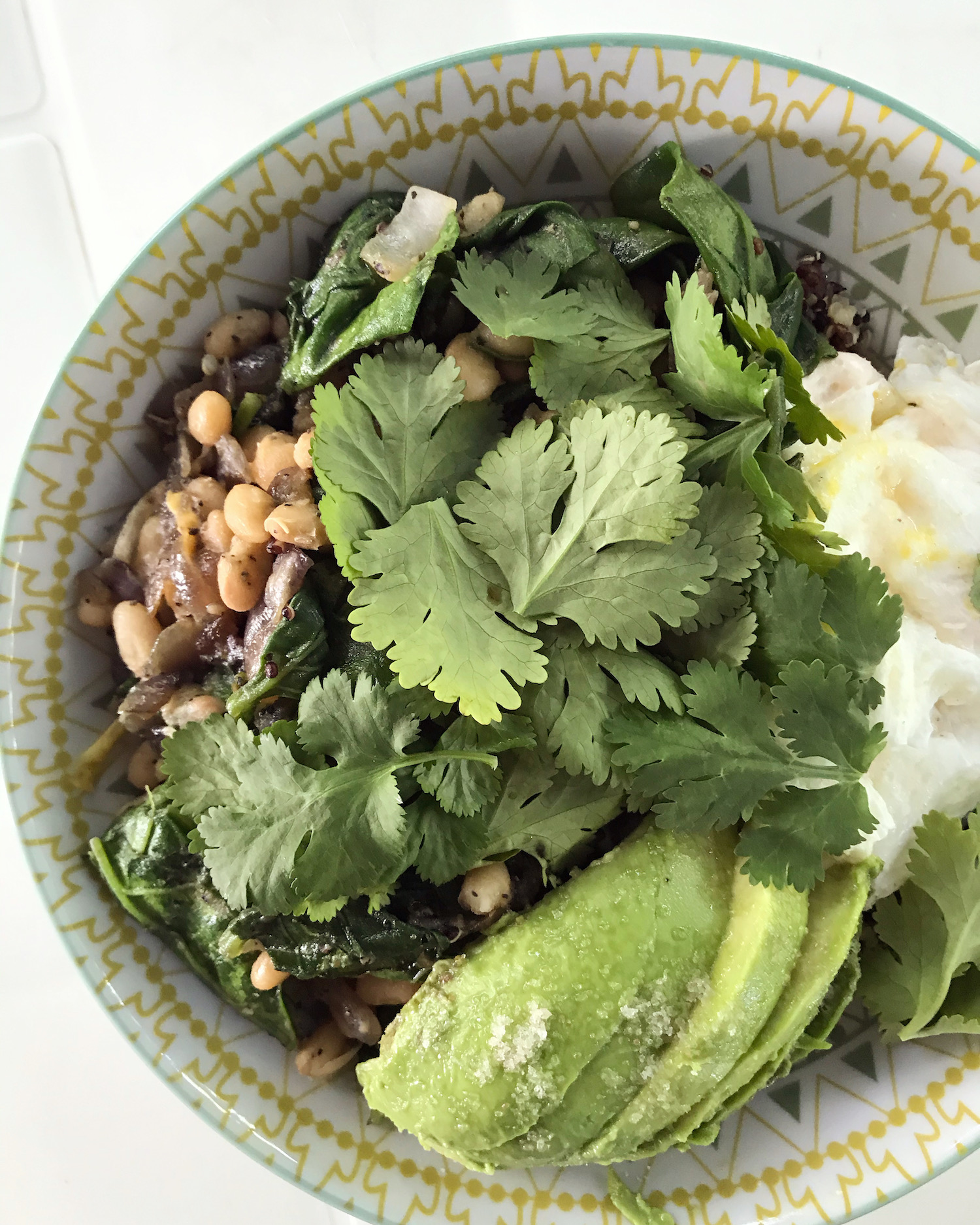
Whether breakfast is the most important meal of the day depends on your body type and metabolism.
For a lot of women struggling with emotional eating and chronic dieting, breakfast is incredibly important for emotional and physical reasons.
Here’s why…
When you don’t eat breakfast, your body gets the false signal that you’re going into starvation mode. Especially if you drink coffee or tea in the morning on an empty stomach.
What happens to a lot of people who skip breakfast – and especially those who replace breakfast with caffeine – is that their bodies go into the stressed nervous system state, not knowing when they’ll get food again.
When your body is in the stressed state, digestion and metabolism slow down, as they’re considered non-essential functions.
Then the day gets away from you, and you find yourself sitting down for a late lunch or dinner, ravenous and eating everything in sight.
And your body is, understandably, like YES! FOOD! FINALLY!
Rather than efficiently digesting and metabolizing all those nourishing calories, your body holds on to them, not knowing the next time you’ll get food.
When you eat a warm, protein-rich breakfast within 90 minutes of waking up, your body can chill out.
She knows she’s getting fed, and she has high-quality energy to start her day off.
Eating breakfast stabilizes your blood sugar and puts you into the relaxed nervous system state, where your body can effectively digest and metabolize food.
But what if you don’t have time for breakfast – especially something warm and protein-rich?
There’s always a way. The first step is belief. You must believe you can find a way, and that your body deserves this nourishment. It’s so important to prioritize your physical and emotional health, and food deeply influences both.
That said, a full breakfast can come together quickly – in less than 10 minutes – when you have a couple simple systems and techniques down.
Today I’m sharing how this delicious bowl of white beans and veggies with poached eggs, avocado, and fresh herbs came together in less than 10 minutes.

White Beans & Veggies with Poached Eggs and Fresh Herbs
Serves 1
Ingredients
1 can white beans
1 small yellow onion
Few handfuls of torn kale
2 eggs
Fresh cilantro or basil
Avocado
Salt
Pepper
Olive oil
White vinegar
Technique
Step 1
Make extra food at dinner. In this instance, I made white beans with sautéed onion and kale, olive oil, herbs, salt, and pepper the night before. I put some in a little glass container and popped it in the fridge for breakfast.
Step 2
In the morning, heat up the beans and veggies in a small pan over medium heat.
Step 3
Fill another shallow pan (not a pot) with water, leaving ¾ of an inch of space at the top. Add salt and a splash of plain white vinegar, and let the water come to a boil. Poaching in a shallow pan makes the process SO much easier.
Step 4
After it boils, bring the water down to a simmer and slide 2 eggs in, on opposite sides of the pan. It can be helpful to crack each egg into its own little cup and then slide them in.
Spoon hot water over the tops of the eggs to make sure they cook evenly. Cook your eggs for about 3 minutes. I use the timer on my phone.
Step 5
While the eggs are cooking, put your warm white beans and veggies into a bowl.
Step 6
When your eggs are ready, after about 3 minutes, use a slotted spoon to slide them onto a couple paper towels to drain the moisture off. Using the same spoon, transfer your eggs on top of your white beans and veggies.
Step 7
Top with avocado, salt, pepper, a drizzle of olive oil, and your favorite herbs. I used cilantro, and I also love fresh basil and parsley.
Prepping and poaching might take a little practice to get down pat, but they’re super fast and simple once you master them. And so worth it.
If you’re struggling with emotional eating and chronic dieting, it’s really important to nourish your body with warm food first thing in the morning.
It sends the psychological signal that you’re safe and cared for, as much as it balances your blood sugar and fires up your digestion.
Both are so key to the recovery process, and to master intuitive eating.
It’s not worth it to risk going hours without food, running on caffeine fumes.
And ultimately, this cycle could lower your metabolic rate and affect everything from digestion to mood.
Do you love breakfast? Struggle with it?
Leave a comment below and I’ll respond with more supportive tools.
I hope this helps you!
Love,
Lula
